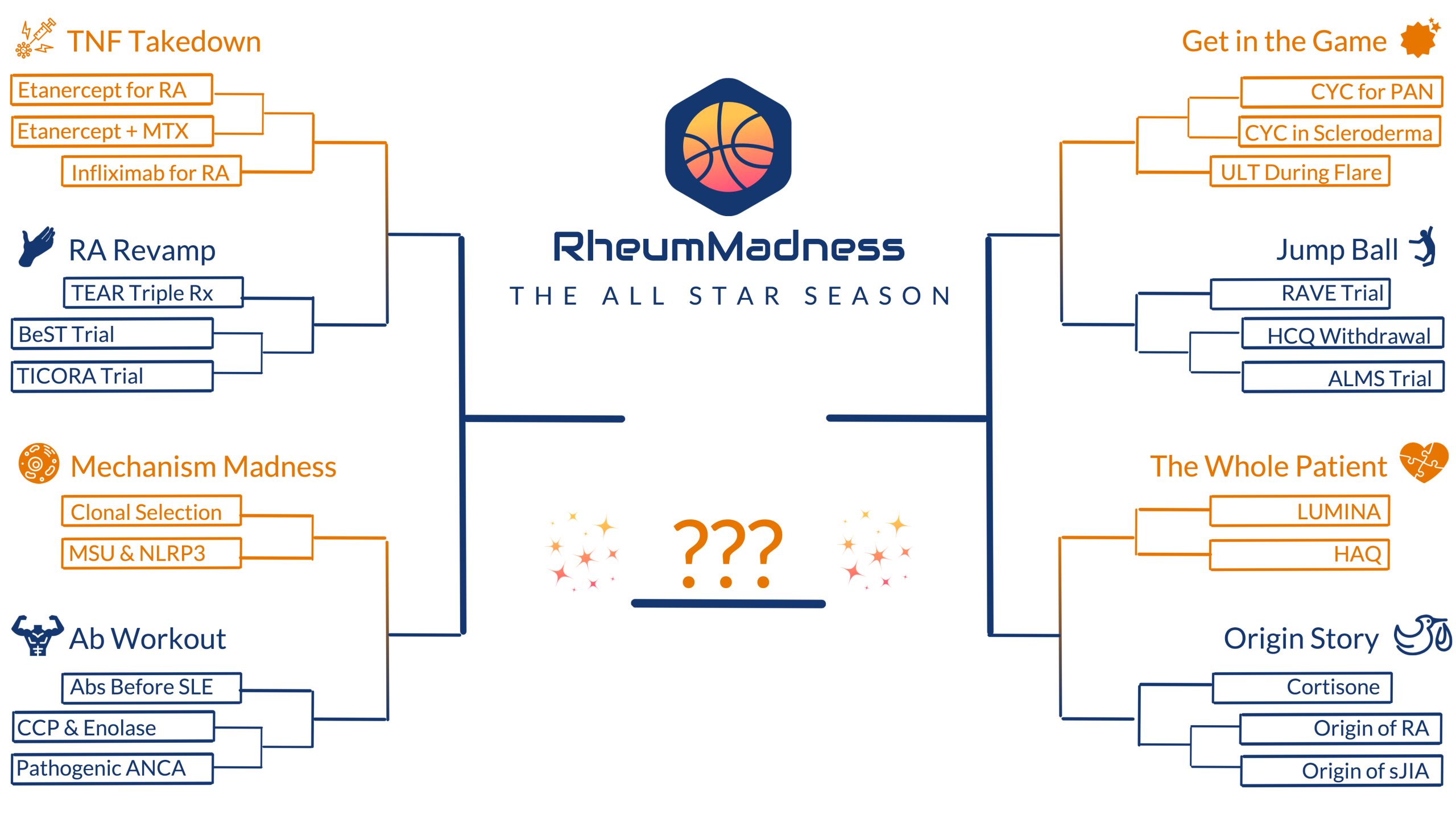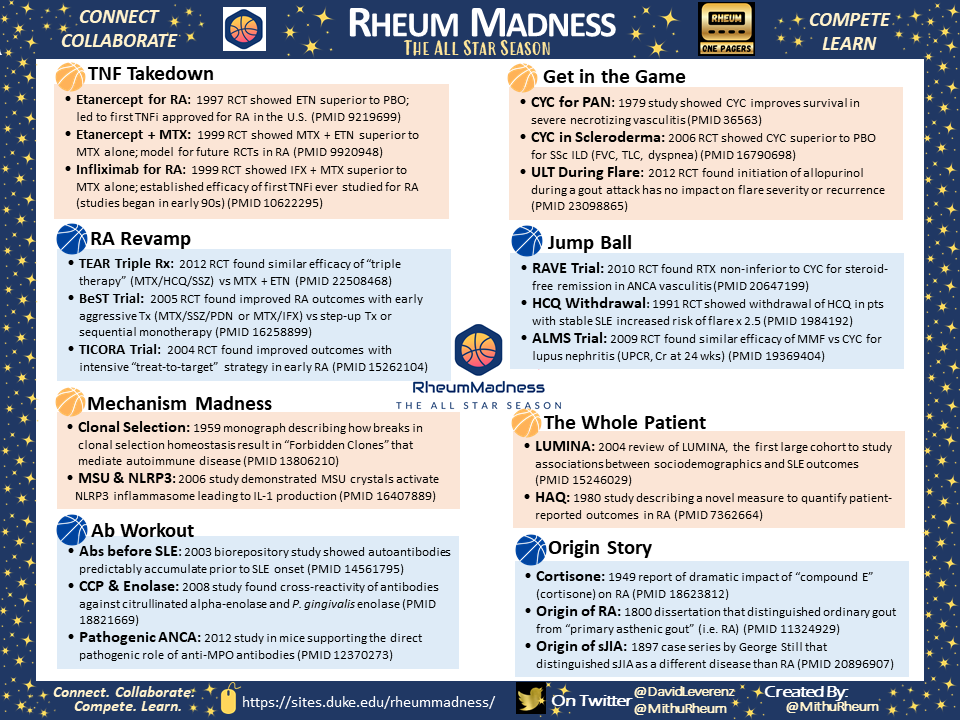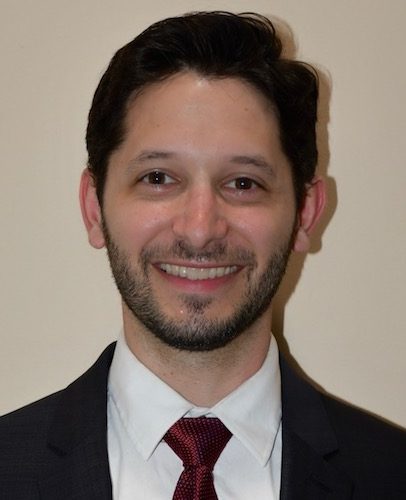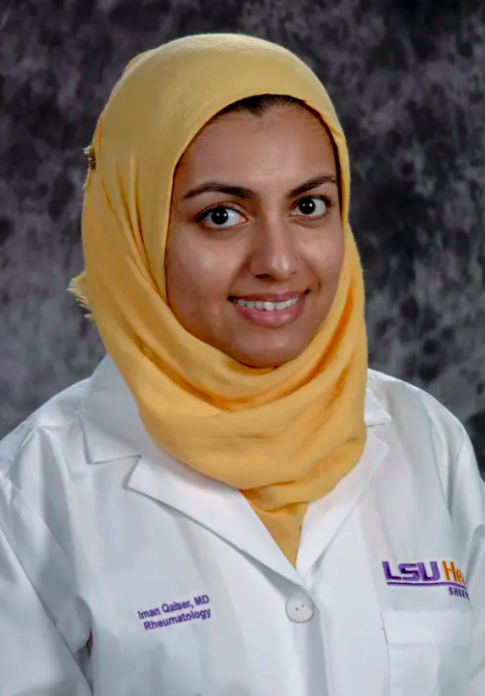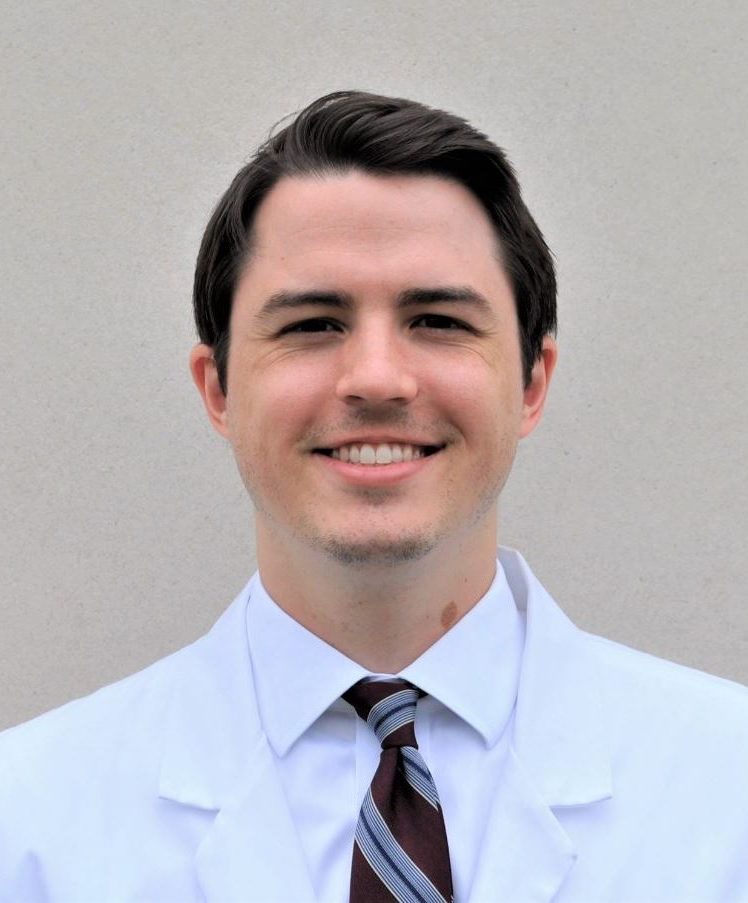With only 3 days left to submit your brackets, the RheumMadness Leadership Team is here to help with our Practically Perfect tips for submitting the perfect bracket. Below you will find reflections from our Leadership team on how they are putting together their own brackets. As a reminder, the leadership team has no influence over the Blue Ribbon Panel. If you need a refresher on how RheumMadness works, head over to the “RheumMadness 101“ page which includes a short explainer video.
Don’t forget, brackets are due March 20, 2024 at 11:59pm ET.
Bracketology Tips from the Leadership Team:
Tip 1: “For this year’s Practically Perfect tournament, I’m creating my bracket by considering which scouting report answers a practical question that comes up most often in my clinic. With that in mind, I predict a final matchup between the Ohio State COVID Vax Guide and the Vanderbilt NORD All Stars, with an ultimate win for the Buckeye Vax-Attack. Honorable mentions go to EMBRACE as my hometown favorite, and to the Michigan Goutbusters for best graphic.”
Tip 2: “LLDAS is going to win Rheummadness 2024, because it is the most applicable in every day practice in the inpatient and outpatient setting. I’m screening my picks using the amazing visual aids, then jumping to the scouting report, then if the topic really captures me I go to the base article itself. And LLDAS made me dive into the methods and beyond! Also, did you read that beautiful poem?!”
Tip 3: “Since the theme of the year is “practically perfect,” I am looking for the article that I would refer to most on a day-to-day basis. In my opinion this is exemplified by team RA-ILD. I have their visual aid saved on my phone and plan to refer back to this over and over!”
Tip 4: “I think SAPHYR will go all the way. Since the theme is “Practically Perfect,” I think the Blue Ribbon Panel will be placing most weight on how the base article will be used by practicing rheumatologists and lead to changes in patient care. I predict this will cause a bias towards teams that involve the most common rheumatic diseases and most frequently used medications. I heavily relied on scouting reports (including visual aids), but since the Blue Ribbon Panel will be reading the base articles to find limitations that base articles may not have described, I reviewed the base articles, as well. While many of the teams’ articles will have a direct impact on patient care, I predict that the effect that SAPHYR will have is more immediately appreciable to practicing rheumatologists.”
Tip 5: “I’m rooting for ARTIC REWIND to take the tourney. Dare I say this trial gives us data akin to that provided in NEJM in 1991 when HCQ withdrawal was investigated in SLE patients? It doesn’t get much more practically perfect than that! Keeping the practically perfect theme in mind, I’m anticipating Comparing ULT, NORD-STAR, and Covid Vax Guide to come out on top of their respective brackets, but we’ll see what happens. Don’t take this rookie, wannabe rheumatologist’s word for it though — let us know what you think and follow along yourself!”
So – participants, what do you think? Will you adopt a similar strategy to the RheumMadness leadership team? Or do you have a different strategy in putting together your brackets? Let us know what you think on X (formerly Twitter) using #RheumMadness.
Want even more RheumMadness content? The RheumMadness team is excited to announce continued collaboration with theMednet.org for our 2024 tournament. theMednet is a physician only site providing a space for physicians to tackle difficult clinical questions and see how colleagues are practicing. theMednet is featuring select Q&A relevant to articles in our 2024 tournament and will provide a space for further discussion and polling around clinical application. Register here for a free account with full access to the site and RheumMadness content!
Here’s a complete list of the Q&As on theMednet.org related to RheumMadness 2024:





